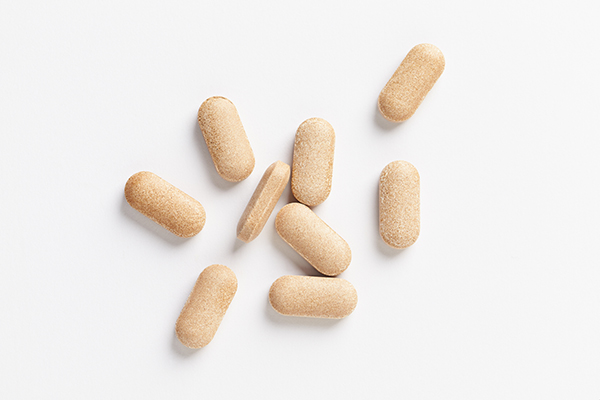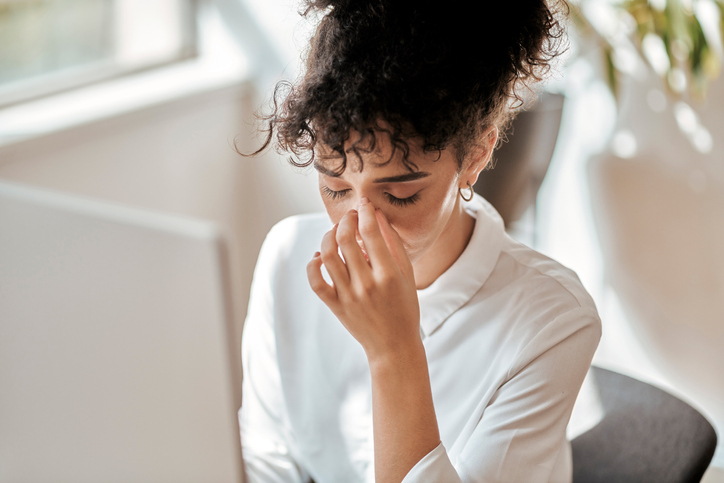Rhodiola (also known by its botanical name rhodiola rosea) is an herb that’s been used in Europe to help promote physical endurance and combat the effects of high altitudes for hundreds of years. Because this botanical has historically been used to help temporary anxiety and fatigue, it has become mighty popular in our modern, stressed-out, wellness-loving world.
It’s now pretty easy to find rhodiola extract, rhodiola supplements, and even herbal shots that contain the root. Read on to find out the benefits of rhodiola root, how you can take it, and why it’s important to be selective about rhodiola (and all other herbs and supplements).
What Is Rhodiola Rosea?
Rhodiola is an herb that is classified as an adaptogen and/or mild stimulant, depending on how it is used, says Kelcie Rosendahl, ND, a naturopathic physician based in Oregon. The root of rhodiola is used to make supplements and also goes by the names of arctic root, golden root, rose root, and king’s crown.
The herb is native to the northern regions of Alaska, Europe, and Asia and has historically been used in Iceland, Sweden, France, Russia, and Greece, says Harris.
Rhodiola Benefits and Uses

Adaptogens like rhodiola and ashwagandha are “substances that encourage the body’s physiology to return to a normal state after a stressor has been encountered,” says Harris. Rhodiola rosea is typically used to help support the body in combating fatigue, temporary anxiety, and burnout. It can also be used to help increase endurance.
But the benefits don’t stop there: “It is known as a stimulant because it can enhance physical endurance, as well as help the nervous system through its antioxidant effect,” says Dr. Alissia Zenhausern, NMD, a naturopathic physician at NMD Wellness of Scottsdale, Arizona.
Harris says that researchers have identified at least 140 compounds in rhodiola with beneficial properties (rosavin being the best known). “The way these compounds interact with human physiology is complicated, and more research is needed at this time,” she says. “Herbs act synergistically and it is likely that these compounds work together to achieve the effects we see with rhodiola.”
Here are some of the potential benefits of rhodiola rosea.
1. Stress support

As an adaptogen, rhodiola rosea has been traditionally used to help increase the body’s resistance to stress, as well as for its beneficial effect on neurotransmitters, says Zenhausern. As such, stress support is a common reason why people consider taking this herb.
2. May help relieve mildly anxious feelings*
In addition to its use in traditional medicine, rhodiola has shown promise in helping with temporary anxiety in preliminary research, says Harris. One 2008 study found significant improvement in generalized anxiety after participants took 340 mg of rhodiola rosea extract for a 10-week period, she says.
Zenhausern adds that its adaptogenic qualities make it great for temporary mild anxiety. It’s important to note that you may need to take rhodiola consistently over time in order to experience all of its benefits.
3. Positive mood support*

Recent research suggest that rhodiola can help support a positive mood. Harris explains that the herb and its active constituents are believed to act on the cellular level to mediate the stress response.
A study conducted on rats found that rhodiola rosea stimulated the release of norepinephrine (aka our “fight or flight” hormone) and dopamine when taken in combination with citrus aurantium (bitter orange).
4. Helps improve exercise performance*
Panax ginseng and rhodiola rosea are both adaptogenic herbs that are popular among athletes, especially those who compete in endurance sports. In one study, ingesting rhodiola rosea an hour before a workout resulted in a lower heart rate and faster speed during a six-mile cycling time trial compared to a placebo.
These findings suggest that exercise performance may be improved with acute ingestion of rhodiola rosea, possibly due to a decreased perception of effort by the participant, explains Harris. In other words, you can push harder without feeling like you’re working more.
Rhodiola Precautions
As with all supplements, there are things to consider before taking this herb, as it can have side effects for certain individuals.
“Rhodiola is a stimulant and can therefore cause overstimulation and sleep disturbance with excessive use,” says Harris. “It may also cause dry mouth or dizziness in some individuals.”
In determining how much to take, always follow instructions on the label of your supplement or talk to your health-care provider. “Always consult with your doctor or naturopathic physician prior to starting any herbal supplement,” Zenhausern adds.
What Is the Best Brand of Rhodiola?
You can find rhodiola supplements at your local health-food store, co-op, and many mainstream pharmacies and supermarkets.
BODi’s Focused Energy Shakeology Boost contains rhodiola, along with several other powerful adaptogens and phytonutrients, to help your body adapt and respond to the effects of stress.
If you want to start your day with extra stress support and energy, FIRST THING blends rhodiola root, vitamin B complex, and green tea for healthy vitality.
While there is no single best brand, both Harris and Zenhausern say it’s important to chose brands that do independent third-party testing to ensure quality and purity.
“Many companies make false claims about their ingredients or the amounts of ingredients their products contain,” says Harris. “Third-party testing gives an unbiased assessment of the quality and contents of a product.”
Anytime you shop for a supplement, consider these questions: Are they processed without harmful solvents or other additives? Is the company reputable? Are they making claims that sound too good to be true? Keep in mind that supplement companies have to abide by industry standards for their claims, which are regulated by the U.S. Food and Drug Administration.
*These statements have not been evaluated by the Food and Drug Administration. This product is not intended to diagnose, treat, cure, or prevent any disease.

